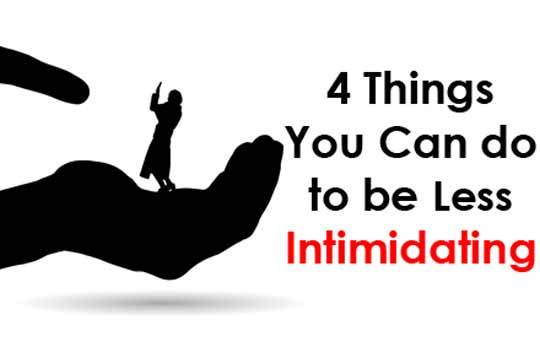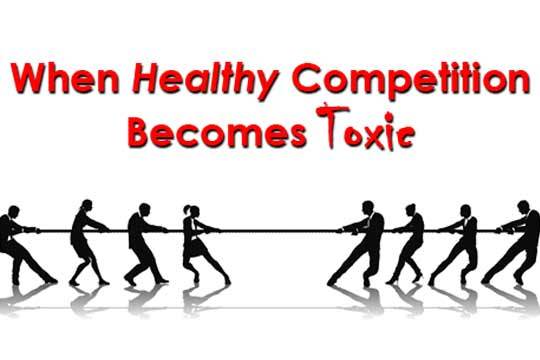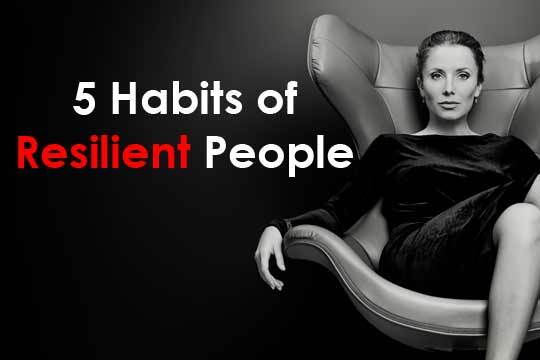Helene Lerner's Blog, page 17
June 16, 2016
4 Things You Can do to be Less Intimidating

Do you notice that people shy away from you? Being feared can help you wield power and gain respect. But if they’re too scared, they may avoid you or not be as productive. Here are 4 ways become more approachable--respected, not feared:
Check your image: Body language speaks louder than words. Bad posture and a grimacing face will repel people.
Really listen: Give someone your undivided attention. Showing interest will make them feel that they can trust you.
Try saying “yes”: Constant rejection gives off negative vibes, so people might be afraid to ask you questions.
Be more agreeable: Not everything will go your way all the time. Don’t panic when there’s a change in plans. A go-with-the-flow attitude makes others more comfortable.
- Barbara Bent
4 Signs You're Overworked and Underappreciated (and what to do about it)

The work keeps piling up, and so do your hours. The coffee can only last so long when you’re working past five consistently. You’re absolutely exhausted by the end of the workday – and it definitely isn’t helping that the boss doesn’t even recognize all your hard work.
What’s the point?
Avoid the dreaded “burnout” at work by making necessary changes and knowing the warning signs. Check out these indications that you may be overworked and underappreciated:
Little Things Are Frustrating the Heck Out of You
Math can take a hike off a cliff. The copier has a personal vendetta against you. Endearing habits of coworkers become ticks that you secretly mock when they’re not looking. Your boss is filled with criticism and only heaps more work on you.
What to do: Channel your frustration and emotion. Is this job worth it, and how badly do you need it right now? Will changing jobs fix the problem? Take some time away from the source of frustration to recover a sense of calm. For example, walk outside for 5-10 minutes and breathe.
For those who need to vent, writing morning pages is a form of meditation. For this morning ritual, you write three handwritten pages of whatever comes to mind, allowing yourself to open up for the day ahead. All you need is paper, pen, and the morning.
Does it feel like the work you do isn’t appreciated? Once your frustration has been vented, be proud of your accomplishments and stand up for your hard work. To further your career, you have to take charge of your career path, and demand what you deserve.
You’re Spacing Out
First, you misplace your glasses, but they’re tucked into your shirt. Halfway through your day, you realize you have a half a cup of coffee from the morning left over. These little things may spiral into larger problems, such as cutting it a little too close on a deadline.
What to do: Ask yourself questions. For example: Am I overwhelmed? What do I need right now?
Give yourself a little slack though, it turns out that spacing out may make you more effective at work, when harnessed properly. Disengaging increases brain activity. When your brain is not hyper-focused on a task, blood flow increases to areas of the brain that were deactivated. For example, when you take more breaks, you feel happier and become more creative. Balance is essential.
You Can’t Turn Off
You’re always switched on at work. You’re the go-to person saddled with overflow work that’s somehow slipped through the cracks. The to-do list only grows by the hour. You somehow figure it all out, when others can’t.
However, you can’t figure out how to relax when you’re finally at home.
What to do: You’re trained to drop what you’re doing on a dime for projects with shifting priorities. As a result, you’re caught up in a constant adrenaline rush. Make relaxation a priority.
You need to minimize distractions and find time for priorities — especially relaxation. For example, dedicate twenty minutes per task, with twenty minutes for yourself to relax or work on a less stressful task. During each task, don’t let anything distract you. While writing a report, don’t check email or social media.
Use time frames that are efficient for your health and productivity. If the workload is too much, tell your employer.
Your Health Is Being Affected
Being overworked is beginning to affect your health. Stress is the reaction of the body to harmful situations, and it can exasperate existing conditions. You may notice the following:
• Weight gain or weight loss
• Persistent headaches or migraines
• You’re constantly tired, even when you try to rest.
• You’re on various medications, and nothing is changing.
• You’ve had spikes in your blood pressure.
• You are developing a dependency on drugs or alcohol.
• You’ve lost your passion for hobbies. Interest in time with family and friends is hard to muster.
• You’re experiencing an increase of mood swings and/or anxiety.
What to do: Speak to your doctor and employer if you sense that any of the above symptoms are severely affecting your health and ability to do your job. A leave of absence due to stress and health is possible. For example, under FMLA, an employee may take a leave of absence for stress by demonstrating that it is a result of a severe health condition and that it will affect your job capabilities. Other suggestions may be provided by your doctor, such as regulation of sleep or a change of diet.
Many recognize the signs of being overworked and underappreciated, but accept it as normal. This leads to burnout, when the body can no longer adjust to the strenuous pace forced on it. Take some initiative to change course before you give out and give up. With a few changes, you’ll find a work-life balance that enhances the quality of your life.

Sarah Landrum is the founder of Punched Clocks, a site dedicated tosharing advice on all things career. Follow her on Twitter@SarahLandrum for more great tips!
What to Do When Healthy Competition Becomes Toxic

We love to see the excitement and drama of competition. Whether it’s in the sports arena, the world of business or during family board games, we seem to love to compete. But does “competing” with others have a dark side where there are no real winners? My experience as a former psychotherapist and now as a coach leads me to say “Yes.”
Here are three ways competition can be toxic (and what you can do about it):
When your self-worth is on the line
If we try to feel good about ourselves from our performance we’re going to be disappointed sooner or later--our performance is never perfectly constant. If you feel good about yourself when you win but feel shame when you lose, you self-worth will always be up and down.
Solution: Start with strong self-worth instead of trying to earn it and you’ll have better performance as a bonus. Learn to feel good about yourself independent of work, status, titles or “gold medals.”
When your self-confidence suffers
If you’re not better than someone in a given matter, whether at work or home, does your self-confidence take a hit or is it fuel for you to continue to learn and grow? If your confidence lags when you “lose” a competition, how is that helpful in your performance efforts?
Solution: Base your confidence on your effort, persistence and love of what you’re doing, not on results at any given moment. Be confident that as you keep honing your skill, you will continue to improve.
When it affects your relationships
Competition can bring out the worst in us when our self-worth and self-confidence is at stake. Have you ever been a part of a family gathering where tempers flared because someone “hated losing”? We speak of “friendly competition” but what do we mean by that? If I feel superior to you because I’m better at something than you are, how does that help us to be friends?
Solution: See the other person or group as helping you to improve your skills, not as a measurement of your worth when you “win” or “lose.” Stop competing and start doing what you’re inspired to do and love to do. What more could we want?

- Alan Allard, Creator of Enlightened Happiness
June 15, 2016
6 Signals Not to Ignore in a New Relationship

Dating someone new is exciting, but don’t get caught up in the moment. Pay attention to these 6 signs that could mean trouble down the road:
They’re hard to reach: Consistently taking hours or days to respond to a text is disrespectful, so don’t waste your time.
They don’t pay: Someone who doesn’t offer to pay for at least half the dates simply doesn’t have manners.
You plan everything: If you find yourself planning all the outings, this could signal their lack of real interest in you.
It’s all about them: Talking about their lives and never asking you any questions means it’s time to say goodbye.
They come on too strong: Your gut will tell you to get out when someone’s being pushy.
Little lies: You catch them telling white lies early on. It may not mean much now, but this behavior will cause problems later on.
- Barbara Bent
4 Reasons Being Blunt Doesn't Make You Rude

Speaking your truth is important, but many people are afraid of confrontation.You may be labeled “rude” if you’re brutally honest. Being blunt may not be good for every situation, but here are some situations when it comes in handy:
You stop wasting time: Instead of being wishy-washy, being straightforward can save everyone’s time. You’ve probably been in a situation where no one can decide what to eat for dinner. When you’re hungry it’s no fun to bounce ideas back and forth for an hour, so being direct about what you want means everyone gets to eat sooner.
Your compliments mean more: Being up-front with your compliments builds trust with people and they’ll know they can rely on you for a candid response. For instance, when a blunt person says they liked your presentation, you’ll know you did a stellar job.
You’ll attract honesty: If you’re brutally honest with someone, they’ll know that they can confide in you and speak their mind. Tell someone how you truly feel about their business proposal, even if it isn’t a compliment. Next time around, you can expect that person to be up-front about what they thought of your work.
You can get what you want: You’ll stand out in a good way if you openly discuss your thoughts and feelings. When you’re trying to get a promotion, be candid with your boss. He’ll know you mean business and will hopefully admire your gumption.
- Barbara Bent
3 Reasons Lasting Attraction is More Than Physical
[image error]
There’s more to a person than a pretty face. Focusing on physical beauty could mean missing out on a deeper connection. Here’s why lasting attraction isn’t skin-deep:
Love isn’t usually at first sight: Physical attraction may be the first to catch your attention, but experiencing true love takes time. Experts say those who date only beautiful people are more likely to stay single because these couples are usually not compatible in the long run.
Nothing is perfect: Don’t focus on someone’s flaws. Have patience with their shortcomings and allow the relationship to build instead of cutting it off prematurely.
Sparks can fly from anywhere: Not being physically attracted to someone right away doesn’t mean that you can’t, in the long run, feel the chemistry. Romance can develop from a platonic relationship.
- Barbara Bent
10 Things People Say That Can Drive You Crazy

We know that no one can really make us feel angry, intimidated or crazy. We do that to ourselves by thinking people should be the way we want them to be. However, in the spirit of the title of this post, here are ten things people say that can be a challenge to not feel a little crazy when you hear them.
(If you have someone that repeatedly uses one or more of these phrases, you might find my suggested responses helpful)
“You can trust me on this.” (Or, “To be honest with you…”)
Response: Why the need to tell me I can trust you on this?
“You’re too sensitive; don’t take everything personally.”
Response: My level of sensitivity isn’t the issue. The issue is you need to learn to be respectful or we won’t be continuing this conversation.
“You could be worse off.” (Or “Don’t worry, you’ll be just fine.”)
Response: I’m sure you’re right. However, I’m not looking for you to make everything right. I’m wanting someone who cares to listen to me and that will be enough.
“I hate to interrupt you, but…”
Response: Then don’t. (Then go right on with what you were saying without missing a beat.)
Do you have a minute to talk?
Response: I would love to talk if I can. How much time do we really need—if I know that, I can tell you if I have the time to talk.
“Any reasonable person would see that…”
Response: Actually, no, I’m a reasonable person and I don’t see it that way.”
“Research tells us that…”
Response: What specific research are you referring to? And has there been additional research that came to a different conclusion?
“Why in the world would you think that?” (Said sarcastically)
Response: That’s the kind of question that doesn’t deserve an answer. Let me know when you’re ready to have a respectful conversation.
“Others might disagree with this but…”
Response: I want to know what you think, so you don’t have to be so careful in letting me know what you think.”
“She’s a bitch.”
Response: Really? Would you say the same thing if a man did or said the same thing—and you might want to give that some thought before you answer.

- Alan Allard, Creator of Enlightened Happiness
June 14, 2016
7 Ways Confident Women Demand Respect

Whether in the workplace or in a relationship, here are the ways confident women command respect:
They are inclusive--encouraging those around them and acknowledging the value of each person they come in contact with.
They are organized--prioritizing important tasks. They dress for success and are committed to the projects they undertake.
They don’t gossip--talking about others behind their backs is tacky. It shows disrespect.
They own up to their mistakes: Perfection doesn’t exist. They learn from their experiences and move on.
They are patient--respecting differences between people and continuing to praise them for good work.
They’re rarely late: Whether turning in a report or meeting with friends, promptness is important to them.
They are positive: Negative energy will drive others away. They keep an open mind and don’t let the “small stuff” consume them.
- Barbara Bent
10 Quotes to Help You Let Go When You Just Don't Want To

Letting go can feel like leaving something or someone precious behind. Sometimes, though, it’s for the better. Here are quotes that may inspire you to let go when you don’t think you can:
1. “We can't be afraid of change. You may feel very secure in the pond that you are in, but if you never venture out of it, you will never know that there is such a thing as an ocean, a sea. Holding onto something that is good for you now, may be the very reason why you don't have something better.”
– C. Joybell C.
2. “Letting go doesn't mean that you don't care about someone anymore. It's just realizing that the only person you really have control over is yourself.”
– Deborah Reber
3. “We have to unclasp our palms and let go of every alternate reality where we’re happier, stronger, brighter because of all the things we did differently. Those universes do not exist. But ours does. And it’s okay here, if we open our eyes up and let it be.”
– Heidi Priebe
4. “Sometimes the hardest part isn't letting go but rather learning to start over.”
– Nicole Sobon
5. “You will evolve past certain people. Let yourself.”
– Mandy Hale
6. “Your time is way too valuable to be wasting on people that can't accept who you are.”
– Turcois Ominek
7. “Thank God I found the GOOD in goodbye”
– Beyoncé Knowles
8. “All the art of living lies in a fine mingling of letting go and holding on.”
– Havelock Ellis
9. “When someone you love says goodbye you can stare long and hard at the door they closed and forget to see all the doors God has open in front of you.”
– Shannon L. Alder
10. “You must make a decision that you are going to move on. It won’t happen automatically. You will have to rise up and say, ‘I don’t care how hard this is, I don’t care how disappointed I am, I’m not going to let this get the best of me. I’m moving on with my life.”
– Joel Osteen
5 Habits of Resilient People

The ability to bounce back from tough situations shows your strength. Take a look at the 5 habits of a resilient person:
Self-Aware: While some people revel in the notion that “ignorance is bliss,” a resilient person listens closely to their physical, emotional, and spiritual needs.
Mindful: These people are comfortable being still and reflecting on important matters. They don’t feel the need to busy themselves with “small stuff.”
Self-caring: It takes practice to slow down, give yourself time to nourish your body, and recharge. It’s not self-indulgent, it’s necessary.
Innovative thinkers: It’s possible to look at a situation differently and consider options. Letting go of what we believe is best can help us be open to new and even better possibilities.
Positive: They are not defined by the hardships of their past. Instead, use their experiences to propel them forward and get what they truly want.
- Barbara Bent
Helene Lerner's Blog
- Helene Lerner's profile
- 9 followers



